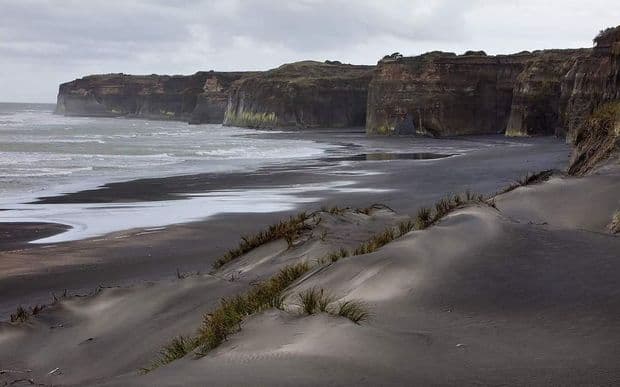Slap down to Sea bed mining "Victory to common sense"

Source: Kiwis Against Seabed Mining
The EPA’s decision to decline a proposal to mine black sand from the seabed of the South Taranaki Bight was heralded today by New Zealand’s only NGO focusing solely on the issue, Kiwis Against Seabed Mining.
“This decision is a victory for common sense and environmental protection, for the coastal communities right up the North Island’s west coast, for the Maui’s dolphins that live in the area and for the blue whales that feed there,” said KASM chairperson, Phil McCabe.
“It became very clear during the hearings that the company, Trans-Tasman Resources, had not done its homework on the full environmental impact of digging up 50 million tonnes of the seabed every year for 20 years. What’s more, the company appeared to think that the absence of this information didn’t matter,” he said.
There was an overwhelmingly negative response to the idea from local iwi, recreational and commercial fishers, surfers, divers and the thousands of people who made up the 99.5% of the 4800 submissions against the proposal.
“You could say this was a victory for the 99 percent.” said McCabe.
The EPA has a mandate to protect the environment and it has done so today, landing on the side of caution. Staff had said there was no way of monitoring draft conditions for a possible consent, because of the lack of environmental baseline data on the area.
While the Government is pulling out all the stops to entice foreign extractors, KASM believes there needs to be a national dialogue examining the issue and is calling for a moratorium on all seabed mining in NZ waters until it is unequivocally proven as safe for the future viability of the marine environment.
Mr McCabe also noted that the economics of the proposal set out by the company were highly questionable, with it admitting that it wouldn’t provide jobs for local unemployed, rather bringing in skilled workers.“Seabed mining is an untested novel idea and at best this application was premature. This first hearing process really highlighted the complexities of the marine environment and that current scientific understanding of what exists is very limited, therefore we’re unable to predict the effects with any certainty.”
“The country would have gotten a tiny two percent royalty from the 95 percent foreign-owned company who planned to trash our marine environment and direct export the raw material to China. Where’s the long-term business sense in that? “
“Refusing this consent was the only real option for the EPA,” he said. “The West Coast communities will continue to stand up for our precious ocean, marine life and black sand beaches.”
